#gaming tools
Text
Not sure what I'll use them for exactly, but they're pretty cool.

EDIT: I just realized they're magnetic and stack.

Second and final edit: they're held together by magnets, so they come apart. Time for color combos!

#gaming tools#rpg#rpgs#games#game tools#game accessories#gaming accessories#cassette#tape#wound counter
2 notes
·
View notes
Text
Logitech G Releases Full Version of MIXLINE: A Free and Easy-to-Use Audio Mixing Solution for Gamers and Creators
Logitech G is thrilled to announce the full release of MIXLINE, starting July 16, 2024. This free audio mixing solution is now available for Windows 10 (21H2 or later) and Windows 11 in 22 languages, catering to gamers and creators around the globe.
“If you have more than one audio source while streaming, gaming, or even just wearing your headphones, then MIXLINE is for you,” said Daniel Bowen,…
#audio customization#audio driver#audio inputs#audio management#audio mixing#audio mixing solution#audio monitoring#audio outputs#Audio Quality#audio routing#audio software#audio sources#audio tools#beta features#clean interface#community feedback#content creation#content production#CPU performance#creators#custom audio#digital media#Discord#easy setup#game audio#gamers#Gaming#gaming tools#independent volume control#live streaming
0 notes
Text
Achievement Hunting 2.0: How Steam Achievement Manager Changes the Game
Are you ready to embark on a new adventure in gaming? Well, get ready because we're about to explore the exciting world of achievement hunting 2.0! With the rise of tools like Steam Achievement Manager (SAM), gamers have discovered a whole new way to unlock achievements and explore the depths of their favorite games. So, grab your controllers and join us as we dive into the thrilling world of achievement hunting like never before.

Understanding Achievement Hunting
Before we dive into the world of achievement hunting 2.0, let's first understand what achievement hunting is all about. In gaming, achievements are special rewards or badges that players can earn by completing specific tasks or challenges within a game. Achievement hunting involves actively seeking out and unlocking these achievements to showcase your skills and accomplishments. It's like going on a treasure hunt in your favorite virtual worlds!
The Evolution of Achievement Hunting
In the early days of gaming, achievement hunting was a relatively straightforward process. Players would spend hours exploring every nook and cranny of their favorite games, completing challenges and earning achievements along the way. However, with the advent of online gaming platforms like Steam, achievement hunting has evolved into a more strategic and competitive endeavor. Players now have access to a wide range of games and achievements, making the hunt more challenging and rewarding than ever before.
Also Read: Becoming a Steam Achievement Manager Expert: Advanced Techniques
Introducing Steam Achievement Manager (SAM)
Enter Steam Achievement Manager (SAM), a powerful tool that has revolutionized the world of achievement hunting. SAM allows players to unlock achievements in Steam games without actually completing the associated tasks or challenges within the game itself. It's like having a secret key that opens up all the locked achievements in your favorite games, giving you the power to customize your gaming experience like never before.
How SAM Changes the Game
So, how exactly does SAM change the game when it comes to achievement hunting? Well, for starters, SAM gives players unprecedented control over their gaming experience. Instead of being limited by the challenges set forth by game developers, players can now choose which achievements they want to unlock and when. This opens up a whole new world of possibilities for gamers, allowing them to tailor their gaming experience to their own preferences and play styles.
The Power of Customization
With SAM, customization is the name of the game. Players can pick and choose which achievements they want to unlock, allowing them to focus on the ones that interest them the most. Whether you're a completionist looking to unlock every achievement in a game or just want to snag a few rare achievements, SAM puts the power in your hands. It's like having a personalized achievement roadmap for your gaming journey!
Exploring Hidden Gems
One of the most exciting aspects of achievement hunting 2.0 is the ability to uncover hidden gems in your favorite games. With SAM, players can unlock achievements that they never even knew existed, revealing secret areas, Easter eggs, and other hidden treasures along the way. It's like embarking on a treasure hunt in your own virtual world, with SAM as your trusty guide. So, grab your map and get ready to explore!
Maximizing Efficiency
SAM isn't just about unlocking achievements – it's about doing it quickly and efficiently. With SAM, players can save time and effort by bypassing the grind and instantly unlocking achievements with just a few clicks. Instead of spending hours trying to complete difficult challenges, players can use SAM to breeze through them and move on to the next adventure. It's like leveling up your gaming skills without breaking a sweat!
The Ethics of Achievement Hunting
Of course, with great power comes great responsibility. While SAM can enhance the gaming experience in many ways, it also raises important questions about the ethics of achievement hunting. Some argue that using SAM to unlock achievements undermines the spirit of fair play and authenticity in gaming. Others believe that SAM simply offers players a different way to experience and enjoy their favorite games. Ultimately, the ethics of achievement hunting with SAM are a matter of personal perspective and choice.
FAQs
1. What is Steam Achievement Manager (SAM)?
Steam Achievement Manager (SAM) is a third-party tool that allows players to unlock achievements in Steam games without completing the associated tasks or challenges within the game itself.
2. Is it ethical to use Steam Achievement Manager for achievement hunting?
The ethics of using SAM for achievement hunting are subjective and can vary depending on personal beliefs and perspectives. Some players may view it as a harmless way to customize their gaming experience, while others may consider it unfair or dishonest.
3. Can using Steam Achievement Manager get you banned from Steam?
Yes, using SAM in a way that violates Steam's terms of service can result in penalties, including account bans or restrictions. It's essential to use SAM responsibly and in accordance with the rules set by Steam and game developers.
4. How does Steam Achievement Manager work?
SAM works by modifying game files on your computer to simulate the completion of specific tasks or challenges, thereby unlocking achievements in the game.
5. Are achievements unlocked through Steam Achievement Manager considered legitimate?
Achievements unlocked through SAM may not hold the same value as those earned through legitimate gameplay. Using SAM raises questions about the authenticity and integrity of the gaming experience.
6. Can using Steam Achievement Manager affect the gaming community?
Yes, using SAM can have broader implications for the gaming community by creating a divide between players who choose to play fair and those who opt for shortcuts. This can lead to resentment and distrust within gaming communities.
7. Are there any risks associated with using Steam Achievement Manager?
Yes, using SAM improperly or excessively can lead to potential risks, including conflicts with game updates, the possibility of corrupting game files, and consequences from game developers or platforms like Steam.
8. Where can I find more information about using Steam Achievement Manager responsibly?
Players can find more information about using SAM responsibly through online forums, community discussions, and resources provided by game developers and platforms like Steam. It's essential to educate oneself about the potential risks and guidelines associated with using SAM.
#Steam Achievement Manager#SAM#Achievement Hunting#Gaming Ethics#Fair Play#Achievement Unlocker#Gaming Community#Online Gaming#Gaming Tools#Achievement Unlocking#Steam Games
1 note
·
View note
Text
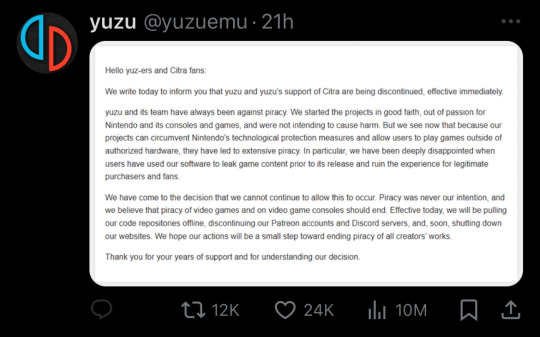
i hope everyone in nintendo’s management department dies and goes to hell no matter what and i’m not kidding
#WERE LOSING YUZU AND CITRA. I DONT KNOW IF YOU ALL UNDERSTAND HOW INSANE THIS IS#game emulation enables piracy yes but it’s also an INCREDIBLY powerful archival tool.#there are plenty of games out there that only exist in their original formats due to emulation.#this lawsuit has HORRIBLE implications for video game history. it makes it incredibly easy for companies to scorched earth their products#if they’re not profitable enough. ART IS GOING TO BE LOST BECAUSE OF THIS. GAMES PEOPLE WORKED INCREDIBLY HARD ON#it won’t just happen to bad games. it won’t just happen to old games. they will use this to keep their remake/virtual console model going#forever and you will never be able to play your favorite games in their true original forms ever again.#i am fucking INSANELY mad rn. capitalism is the death of art fr#personal
11K notes
·
View notes
Text
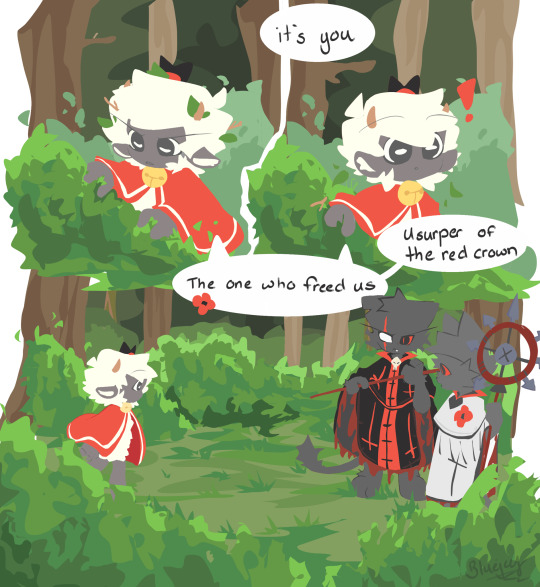
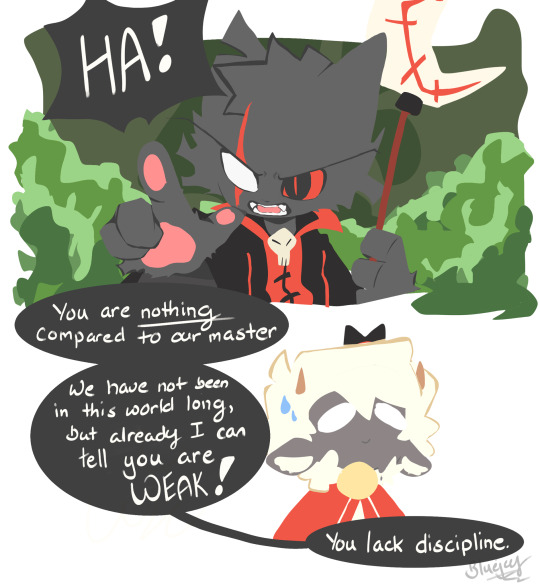
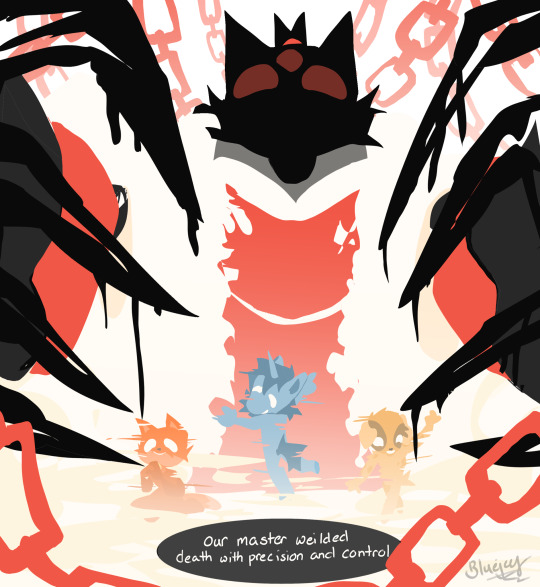
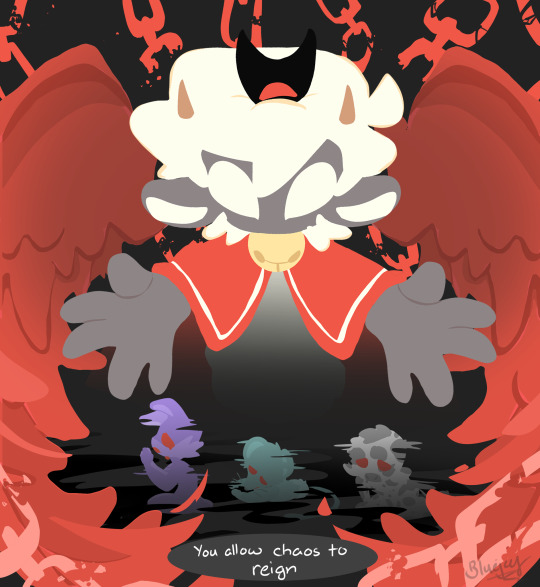
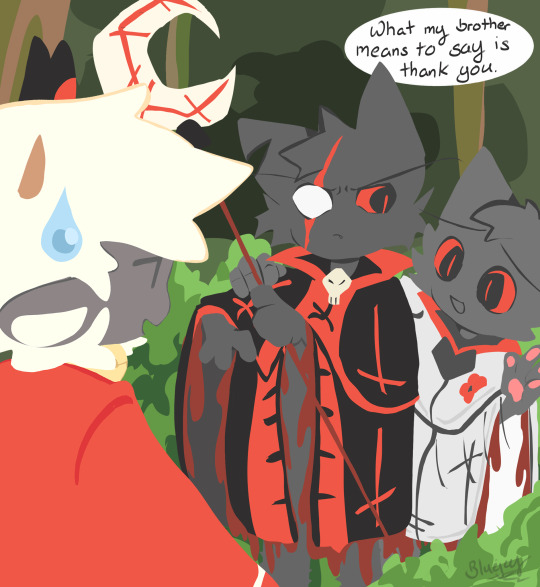
comic based off that one baal and aym interaction!
#one of my favorite interactions despite having never gotten it in game#lasso tool is my best friend 🙏#cult of the lamb#cotl#cult of the lamb aym#cult of the lamb baal#cotl baal#cotl aym#aym and baal#cotl fanart#cotl lamb#jey draws
4K notes
·
View notes
Text

hhhhrrrnnhh.... it's pride month they say…
#charmes#charon x hermes#hermes hades#charon hades#hades game#hades 2#hades fanart#hades#hades supergiantpaint#paint tool sai
2K notes
·
View notes
Text
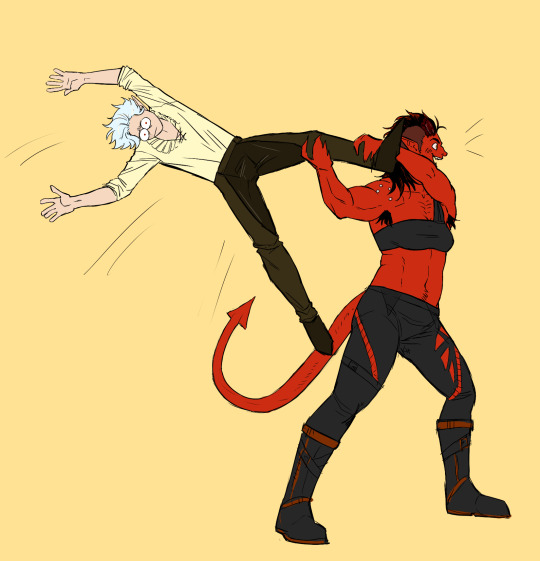
hit a mf with another mf
#karlach#astarion#bg3#baldur's gate 3#i dont have a blur tool on my pirated sai. sorry akjsjdhf#also. its hard to draw their clothes when u dont have the game lol#i love them so much#this is from a very old meme btw aksjjdhd
4K notes
·
View notes
Text
OFF: The Whale
Based on the painting Moby Dick, by Gerard Dubois.
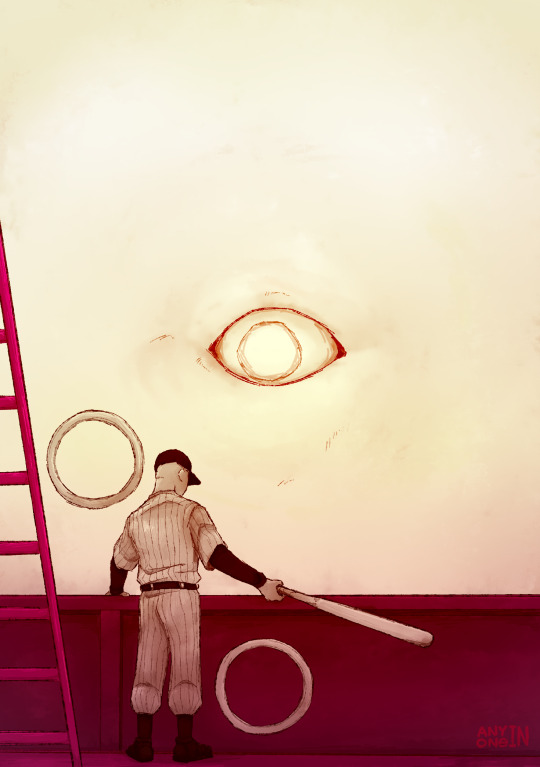
#artists on tumblr#paint tool sai#fanart#rpg#rpg game#rpg maker game#mortis ghost#off mortis ghost#off the game#off the batter#off batter#batter off#the batter#off fanart#off by mortis ghost#off rpg
1K notes
·
View notes
Text
yall like to pretend that "don't split up" is the most obvious rule in any horror scenario, but what's the alternative? stick together and cooperate ? to find a solution? in a life-or-death situation??? babe surely you have been in enough group projects to guess how that shit ends
#honestly would prefer to try to strike a work-study deal with the Killer#rather than team up with your average group of horror movie characters#listen. the Killer has their shit together. they've planned this. they have clear goals. they have tools. they have a timeline.#whereas the So-Called Protagonists decided it would be 'fun' to get drunk in a cabin in the woods with no cell reception#honestly i'm siding with the Killer on this one. at some point that's fair game. ethically sourced murder victims
3K notes
·
View notes
Text


somewhere deep in the forest...
#trying to get some use out of this 30$ game pack i never use#i'll favorite the original lot on the gallery so that you guys can find it on my profile (ceru-bean)#ts4 gameplay#the sims 4#simblr#s4mm#s#ts4#aslo! once im done making the camp tshirts and hats and everything im gonna make the camp counselors!!!! im so excited ^-^#i was thinking of having 4 young adults and 3-4 teens as counselors and then about 12 kids for the camp? idk we'll see#also need the tool mod so i can add activities around the camp off lot like archery or smtg#we'll see how long this fixation lasts and if it'll ever see the light of day but at least i hope it inspires someone else!
582 notes
·
View notes
Text
I’ve seen a few posts commenting on the boys’ board game closet consisting almost entirely of copies of Clue but I haven’t seen anyone point out that they also have a Ouija board in there
Who are you communicating with? Each other??
#nah it can’t be that the boys would never communicate with each other *finger guns*#anyway#it’s in the game closet so are they treating it as a game not a supernatural tool?#do Ouija boards not actually communicate with spirits in the spirit-communication universe?#dead boy detectives#mine
1K notes
·
View notes
Text
So my home ttrpg group is between longform games right now, and I have been planning to bring a bunch of games to them this weekend as options for what we might play next. However, I have been trying to figure out how to talk about the games in a way that doesn't rely as much on me explaining the vibes to them.
I know that people have a bunch of qualitative categories for how they explain games, but I find the idea of saying things like Dark Fantasy OSR, or Lesbian Goofball PBTA less helpful when talking about how games actually play, especially when two games in the same category are like, wildly different in the way they use their frameworks.
So I invented a 6 axis, 1 to 5 star rating scale for TTRPGs that you are free to borrow when talking to groups, or whatever.
TTRPG 5 Star Rating Matrix
Width
What is the scope of this game? Is it narrowly about one thing or does it encompass many types of play? (Credit to friend of the blog @ostermad-blog for this one, they came up with it from my draft)
Weight
How much cognitive load does the player need to bear? Do rules often need to be referenced verbatim? Can those rules fit on a handout?
Wargame
Is the player expected to apply tactical acumen? Is movement tracked tightly or loosely? Does a bad build punish a player?
Writers Room
How much are players expected to make narrative choices and drive the story without the rules scaffolding them? Does this game fall apart without excellent improvisational storytellers?
(Prep)Work
Does this game require a lot of pre-planning by the facilitator? Are there intricate systems to attend to outside of table play? Can I put in the same amount of time as other players and still have everyone leave happy?
Whimsy
Expected tone of the game. Does this game have difficult thematic elements baked in? Is the core subject or role in the game high or low risk?
Here are some games I know well and how I calibrated them:

I have breakdowns of what each star rating means below the cut if you're curious. Happy Gaming!
Width
⭐ - As written, the game has basically one mode of play, or one thematic core that it meditates on. May have phases, but textural difference is minimal.
⭐⭐ - As written, there are at least two modes of play, but the scope of that play is highly thematically focused or highly dependent on using the game’s own lore. Might have only one kind of character (e.g. Mech Pilot) that it supports. Has limited tools outside of the primary mode of play.
⭐⭐⭐ - Has a variety of modes of play, but may be rigid in their execution. Might encompass multiple kinds of characters (e.g. Doctor, Lawyer, fighter) or character options. The narratives that this game tells within its setting are narrowed, a three word description tells you what kind of stories it can tell with consistency.
⭐⭐⭐⭐ - Loose framework, but with some kind of thematic grounding. Describing the framework in 3 words doesn’t tell you the kind of stories that the game tells (e.g. Dark Fantasy, Star Wars Romp).
⭐⭐⭐⭐⭐- As written, this game is designed in such a way that it doesn’t put specific limits on what sorts of stories that it is meant to tell. It might ask players to define abilities or stats for themselves. The Facilitator is going to pitch a thematic grounding on top of the rules set.
One Star Examples: For the Queen, Dialect, Honey Heist
Five Star Examples: Fate Core, Savage Worlds, GURPS
Weight
⭐ - It is reasonable for a player to be able to recite the rules from memory. The game may be prompt based, or driven by a flow of rules that are read aloud as played.
⭐⭐ - Players can hold most of the most important information about the game in their heads, with a page or less of rules reference needed to play smoothly. This reference could all fit neatly on the character sheet if one is present.
⭐⭐⭐ - Everything a player needs to know about the game is visible on less than 3 sheets of reference. Players are more or less expected to know exactly how their own abilities work in precise detail, and are unlikely to make a mistake in executing them.
⭐⭐⭐⭐ - Players make extensive use of multiple reference sheets to keep rules moving smoothly. No external tools are needed, but players memorizing the details of all of their abilities is taxing.
⭐⭐⭐⭐⭐- Players and facilitators will prefer to make extensive use of external tools or reference to keep play moving smoothly. Expecting a player to have the exact details of their abilities memorized is not reasonable.
One Star Examples: For the Queen, Stewpot, Mobile Frame Zero: Firebrands
Five Star Examples: Dungeons and Dragons 3-5e, Lancer, Edge of the Empire
Wargame
⭐ - As written, this game does not treat combat as mechanically different from any other aspect of play, or does not include narrative violence at all.
⭐⭐ - While players may engage in combat, it is minimally different from regular play. There may be tools or abilities for players to use to conduct a fight, but the texture of those fights is thematic, not mechanical. Narrative and consequence drive the action, not hit points.
⭐⭐⭐ - As written, combat has its own set of rules. This game may have some elements of buildcrafting, but either it is difficult to build something that doesn’t work, or the player may meaningfully invest in other modes of play and still find a commensurate level of satisfaction. If combat occurs, spacing is kept in mind, but is tracked in relative terms (range bands) or highly simplified (zone based combat).
⭐⭐⭐⭐ - This game has buildcrafting that is somewhat mandatory if players wish to survive a fight, but there is still a meaningful choice in choosing a non-combat role. It may use a grid or a spacing system to help players visualize the combat. Fights are driven by mechanics, not by narrative.
⭐⭐⭐⭐⭐- To enjoy this game, players must spend time buildcrafting. If a player’s build is suboptimal, there may be significant parts of the intended experience that will either feel tedious, or that the player will not have meaningful access to. This game is played on a grid.
One Star Examples: Wanderhome, Dialect, Belonging Outside Belonging
Five Star Examples: Lancer, Dungeons and Dragons 3-5e, Valor
Writers Room
⭐ - Players in this game are not expected to provide much in the way of narrative substance. Story is something that is driven by external input or tools, and players are there to imagine and react. The player need not separate the self from the character they play in any meaningful way.
⭐⭐ - The mechanics of this game drive most of the narrative, or else the narrative is set for the players by an external source or player. Players are encouraged to play optimally rather than dramatically, but do have room for expressing the identity of their character within the game’s mechanical frameworks.
⭐⭐⭐ - While the game does provide strong scaffolding to tell a story, the players present are expected to drive the story within those frameworks. The game’s systems create and resolve conflict on their own, but works best when the players are willing to choose the dramatically interesting option even if it mechanically non-optimal.
⭐⭐⭐⭐ - The game provides some mechanical tools that create and resolve drama, but there is a significant expectation that the players are buying into and driving the game’s thematic concepts. Players are the ones deciding what the scenes should be and when to end them, but mechanics still help determine outcomes.
⭐⭐⭐⭐⭐- The players are expected to drive the narrative at all times. Tools for deciding what scenes to do and when to end them are limited, optional, or vague. There is no meaningful scaffolding that creates conflict or resolution, it is incumbent on those present to manifest those things.
One Star Examples: Alice is Missing, Ribbon Drive, For the Queen
Five Star Examples: Wanderhome, Systemless RP
(Prep)Work
⭐ - Facilitators are not expected to do work outside the time at the table. All rules can be read while the game is played. No memorization is needed.
⭐⭐ - This game expects the facilitator to have read the rules in advance, but the rules are so few that they can be run from a single reference sheet. At times, the facilitator must think about and potentially advance and adjust the narrative of the game behind the scenes. Prep is qualitative; answering questions about where the narrative is going to go, who will be there etc. The game can be run smoothly predominantly as improv.
⭐⭐⭐ - This game expects the facilitator to not only know the rules, but to imagine scenarios where the group must play. However, the scope of the scenario design is limited and qualitative. It takes a bit of pondering and perhaps a sketch and a few words of notes. Alternatively, the facilitator must design simple foes or track a simple background system. The work is trivial, and can be done with a bit of time before session.
⭐⭐⭐⭐ - The facilitator of this game is expected to have run systems between games, or created usable maps or scenarios. Generally, games at this level have some reduced wargaming component. The facilitator might need to engage in enemy design, but the work is limited or imminently reusable. The work is non-trivial, and failing to do it will somewhat impact the quality of play.
⭐⭐⭐⭐⭐- The facilitator of this game puts in significant time between sessions engaging in game design activities. They are expected to plan narratives, write NPCs, draw maps, run significant background systems, and design enemies and combat encounters. The work is significant outside of play, and failing to do it beforehand will result in a worse table experience.
One Star Examples: For the Queen, Alley-Oop, Lasers and Feelings
Five Star Examples: Lancer, D&D 3-5e, Stars Without Number, Edge of the Empire
Whimsy
⭐ - This game’s thematic core is considered dark, taboo, or difficult, and separating the game’s mechanical features from this subject matter is next to impossible. Games with horror elements almost certainly fit within this category. These games encourage extensive pre-play safety talks.
⭐⭐ - This game is designed to look at dark subject matter, but doesn’t expect the player to spend all of their time there. Players explore difficult topics, but may get to choose what topics to explore, or when to explore them. Games with political messaging/commentary tend to fit this category. These games encourage pre-play safety talks.
⭐⭐⭐ - This game may have dark aesthetics, but doesn’t enforce them mechanically. Alternatively, there are mechanics that address difficult topics in broad strokes, but players are given leeway in the rules with how any difficult topics are approached. These games may encourage safety talks.
⭐⭐⭐⭐ - This game may have the option to explore dark topics, but none of the mechanics are tied to such topics. This game may have violence in its aesthetics, but players may choose to adjust the aesthetics at the table to suit their comfort. These games tend not to talk about safety in their text.
⭐⭐⭐⭐⭐- This game is designed to focus on thematic material that is considered to be relatively safe. The game is unlikely to tread into violence or trauma without effort.
One Star Examples: Trophy Dark, Dungeon Bitches, Vampire the Masquerade
Five Star Examples: Honey Heist, Princess World, Beach Episode
The system here isn't about what's good or bad, to be clear. I think there are good and bad games at every level of these categories, but when I think about what my game group is good at and comfy with, I don't think we go in for things at like the 5 end of the Writers Room scale. It's too much work, and most of them aren't pro improvisers.
Similarly, if we play another game that is a 4 or 5 on the PrepWork category, I don't have time to run it these days. So this helps me make practical choices about our next game.
#ttrpg#indie ttrpg#game design#dnd#ttrpgs#ttrpg design#d&d#lancer rpg#steal this#safety tools#five star ttrpg matrix
471 notes
·
View notes
Text




she's working late... cause she's a seamstress
#marso#mgp#I wanted to make my lovestruck main girlie to have a little of a story#so she became a seamstress#explains why she has all those crazy costumes#still haven't played though because I forgot to remove TOOL#and wanted to play in the new world#I'll move the lot over when I get back in game later
418 notes
·
View notes
Text



not the sharpest tool in the shed
#my art#dandys world#dandy’s world#dandys world astro#dandys world oc#dandys world tisha#★ arin rambles#my genuine thought process btw#i drew this immediately after reading that conversation while in a game#i was like. Huh. Why did he respond like that. Maybe… Maybe he doesnt have arms…..#(completely forgetting the fact that his twisted has four arms)#LISTEN IN MY DEFENSE I JUST THOUGHT IT WAS A COOL DESIGN CHOICE FOR TWISTED ASTRO I DIDNT THINK HE JUST STRAIGHT UP HAD FOUR ARMS#SO MY FIRST THOUGHT WAS NOOOOOO ASTRO 😭😭😭😭‼️‼️‼️ ITS OKAY ILL HELP YOU I DIDNT KNOW YOU HAD NO ARMSSSS#i take it back i AM the sharpest tool in the shed!!
431 notes
·
View notes
Text

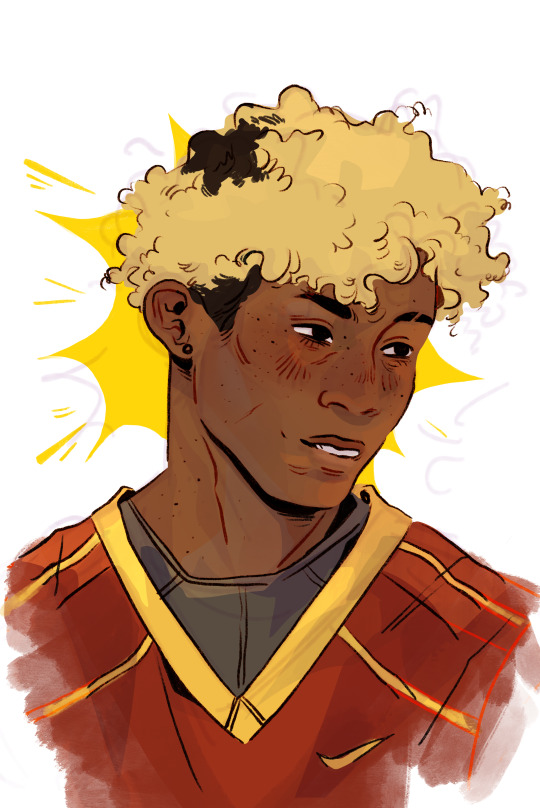
[kevin day voice] some of them u like
#He <3#Also can’t believe Kevin just called jean gay like that like what do u mean sir#🤨🤨 what are u talking about sir 🤨🤨 the implications#Also discovered my bestie lasso tool#Jeremy knox#tsc#the sunshine court#my art#aftg#all for the game
517 notes
·
View notes
Text
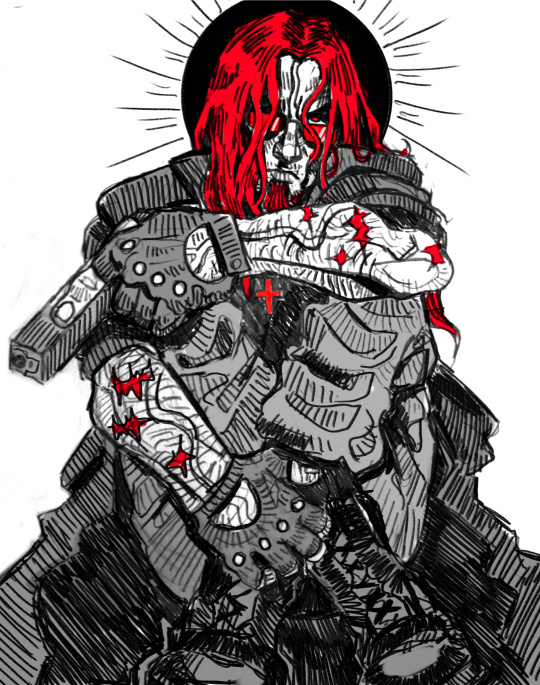
Bad day 💫
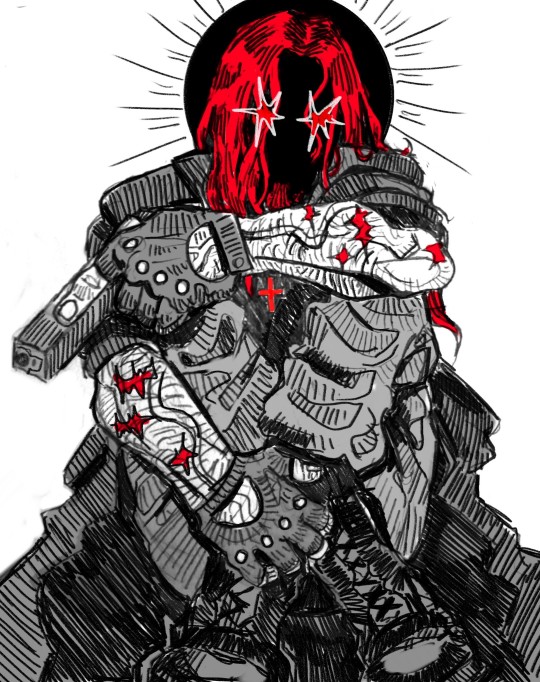
#God I hate these a little bit. Took me too long to do. I hate the new paper in my sketchbook it blunts my pencil so bad#Anyway I wanted to draw p1 dude but I wanna try again some time. I wish I could draw way better than I do#Listened to TOOL The Patient on repeat w this one#Postal 1997#Postal#Postal dude#Postal 1#P1 dude#Postal game#The postal dude#fan art#art#sketch#character art#Gun
739 notes
·
View notes